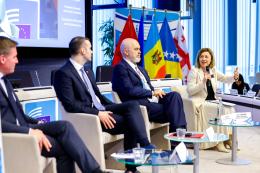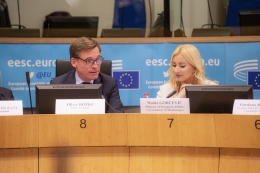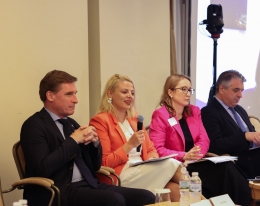European Economic
and Social Committee
Uitbreidingslanden
Het EESC is actief betrokken bij het uitbreidingsproces van de EU en heeft een tweeledige aanpak ontwikkeld – regionaal en bilateraal – voor zijn betrekkingen met organisaties van het maatschappelijk middenveld in de uitbreidingslanden.
Met betrekking tot de regionale benadering is het follow-upcomité Westelijke Balkan – een permanent intern orgaan van het EESC – het belangrijkste instrument voor het coördineren van de activiteiten van het EESC in deze regio. Het forum voor het maatschappelijk middenveld van de Westelijke Balkan, dat om de twee jaar wordt georganiseerd, maakt deel uit van de werkzaamheden van het follow-upcomité.
Het EESC werkt ook bilateraal samen met landen van de Westelijke Balkan en Turkije. Op basis van de associatieovereenkomsten tussen deze landen en de EU, om de organisaties van het maatschappelijk middenveld te betrekken bij de pretoetredings- en toetredingsprocessen, heeft het EESC drie gemeenschappelijke organen gecreëerd met vertegenwoordigers van het maatschappelijk middenveld – met Turkije, Montenegro en Servië. Elk orgaan bestaat uit een gelijk aantal leden van het EESC en van het partnerland en komt tweemaal per jaar samen.
Het EESC onderhoudt regelmatige contacten en organiseert gezamenlijke activiteiten met de organisaties van het maatschappelijk middenveld van uitbreidingslanden waarmee nog geen gemeenschappelijk orgaan voor vertegenwoordigers van het maatschappelijk middenveld is opgericht.
De werkzaamheden van de gemeenschappelijke organen worden aangevuld met de voorbereiding van EESC-adviezen over de pretoetredings- en toetredingsprocessen van de afzonderlijke landen, alsmede over onderwerpen van regionaal belang.









